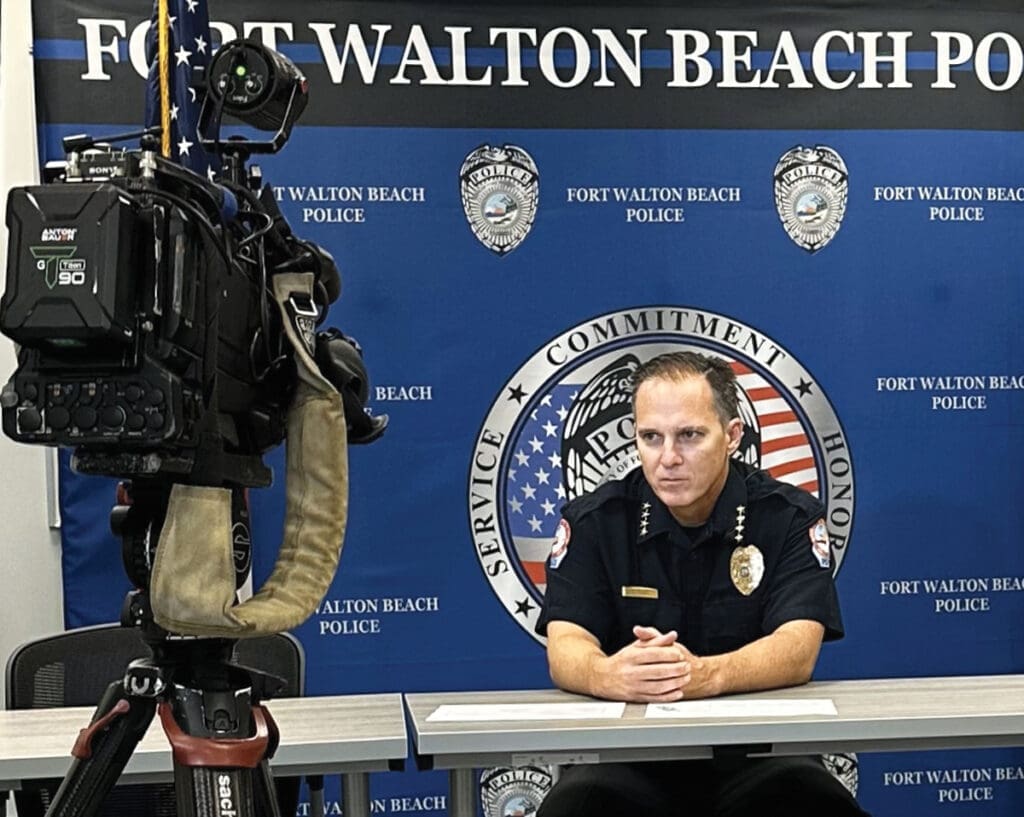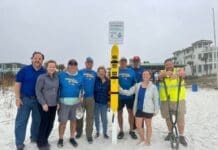By “Doc Doug” Stauffer
Did you know Florida Panhandle counties have the number one per capita drug overdose death rate? So, something needed to be done to intercede on behalf of those caught up in the cycle of addiction.
Now, a collaborative effort to combat the opioid epidemic is underway in Fort Walton Beach with the launch of the Post Overdose Support Team (POST) pilot program. Initiated on June 17, the program aims to provide immediate and ongoing support to individuals who have recently survived an overdose.
 The POST team, comprised of representatives from the Fort Walton Beach Police Department (FWBPD), Okaloosa County EMS and a clinician from Bridgeway Center, reaches out to overdose survivors within 24 to 72 hours. This initiative offers a critical time window to engage individuals and connect them with essential resources and treatment options. Police Chief Robert Bage emphasized the importance of this timely intervention, noting, “The quicker we can provide services to people in need, the more likely they are to take these services from us.” He also made a profound assertion: “(We) initially came to save their lives (and) now to save their futures.”
The POST team, comprised of representatives from the Fort Walton Beach Police Department (FWBPD), Okaloosa County EMS and a clinician from Bridgeway Center, reaches out to overdose survivors within 24 to 72 hours. This initiative offers a critical time window to engage individuals and connect them with essential resources and treatment options. Police Chief Robert Bage emphasized the importance of this timely intervention, noting, “The quicker we can provide services to people in need, the more likely they are to take these services from us.” He also made a profound assertion: “(We) initially came to save their lives (and) now to save their futures.”
Since its inception, the POST program has already made a significant impact. In just a few weeks, the team has met with more than 20 individuals, six of whom have decided to seek treatment. This early success is promising, demonstrating the program’s potential to break the cycle of addiction.
Chief Bage highlighted the local nature of the opioid crisis during a recent press conference, stating, “About 60 percent of our overdoses came from local residents, people with a Fort Walton Beach zip code. This is a local issue affecting your neighbors, people you work with, people you know.”
The POST initiative is part of the broader Coordinated Opioid Recovery (CORE) Network in Okaloosa County. CORE is a collaborative effort involving Okaloosa County, Bridgeway Center, and the Okaloosa County Health Improvement Partnership (OCHIP). The program is funded through Okaloosa County Opioid Settlement allocations and is supplemented by the Florida Department of Health in Okaloosa County via the Overdose Data to Action grant.
Captain Greg Cain, Section Commander of Okaloosa County EMS, praised the program’s collaborative nature, stating, “This joint effort of multiple agencies within Okaloosa County and the State of Florida is a targeted approach to helping people help themselves.”
In addition to direct intervention, the POST team will also conduct community outreach to educate the public on available resources for opioid addiction. This includes promoting the availability of naloxone (NARCAN®) kits, which can reverse the effects of an opioid overdose, and emphasizing the importance of having these kits accessible.
Amanda Colwell, Assistant Director at the Florida Department of Health in Okaloosa County, stressed the importance of comprehensive emergency kits, which include naloxone and CPR supplies. “Do not wait until someone overdoses; reach out to these resources to help them,” she urged.
The POST program is set to expand county-wide this month, with additional support from the Okaloosa County Sheriff’s Office. This expansion aims to reach even more individuals in need and further reduce the incidence of opioid overdoses in the region. Okaloosa County will be the first county-wide program in the state.
Individuals can contact the Okaloosa County Health Department for more information on the POST program and related resources or to receive a naloxone kit. County residents are encouraged to support and engage with these vital initiatives, helping to ensure a safer and healthier future for all residents. Remember, “One Pill Can Kill,” and the one it kills could be someone you know and love.























































